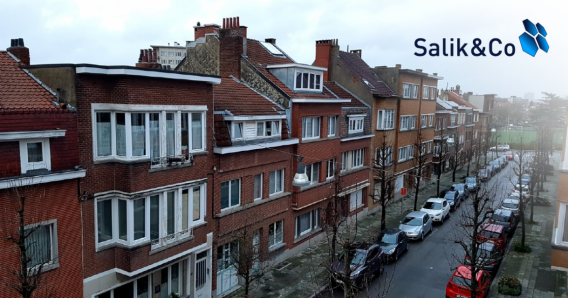Purchasing a home is a big commitment, especially with the constantly increasing prices in East London. Getting a good deal should be your first priority if you want to buy your first home or upgrade from your current one. The question is how to approach a deal in a professional manner and not get lost in the details.
Certain sellers can be taken off guard, but most expect some sort of negotiation. Knowing when to push and when to hold back is the tricky portion in this case. In this guide, you will learn how to gain the upper hand when buying homes in East London. Keeping your calm will come easily with the tactics provided.
1. Do Your Homework First
Before thinking about making a deal, you must understand the current state of the market. What prices have similar properties sold for recently? Sites like Zoopla have all the necessary information. Property management agents in East London can also have helpful information concerning what would be considered a reasonable price.
If a home sells quickly and is priced at or above the asking price, you may not have room to negotiate. However, if a property has been on the market for several months, then it’s likely that the seller will accept a lower counteroffer.
2. Organising Your Funds
Buyers are taken more seriously by sellers and real estate agents if they know the buyer already has their finances sorted. You should get an Agreement in Principle (AIP) with your mortgage lender before starting negotiations. This makes you a more desirable buyer because it indicates that a bank is willing to lend you money.
If you are purchasing your first home, not being part of a buying chain (which means you don’t have to sell a property before buying) is a strong advantage. Sellers appreciate buyers who can act quickly, so take advantage of that.
3. Foster Good Relations with the Seller
Establishing a good relationship with the seller can improve your chances during the negotiation. If the seller has a positive impression of you, they can be more willing to accept your offer.
Be polite when you go for showings, and ask for information about the home that you want to know. You never know—if they have many offers, they might choose you simply because you seem like someone who would take care of their property.
4. Make a Good Initial Offer
It might be tempting to offer a ridiculously low price for the property, but going overboard can cost you the seller’s consideration. Rather, begin with a sensible first offer based on:
- How long has the property been for sale
- What other homes in the vicinity have been sold for
- The state of the property (Does it need work? Are there any issues?)
- How urgently the seller wants to relocate
If the property needs several repairs, let that fact work in your favour to increase the chances of the offer being accepted. Just make sure that you give your offer reasonable supporting arguments which make it difficult for the other party to disregard.
5. Being Skilful In Negotiations
Unlike many buyers, who might be uncomfortable with haggling, it is critical to remember that such practices are perfectly healthy in today’s economy. In reality, most retailers are already used to making such transactions. Rather than overly requesting for a lower price, be more flexible in your approach.
Ask if they are open to negotiating instead of being rigid with a discount. Seek possibilities validating a lower price, such as “The boiler will likely need to be replaced soon. Are you willing to consider lowering the price?” Propose an incentive for accepting such terms, like agreeing to the moving date or offering a faster sale.
People selling their houses have their own considerations for earning money, which may not be restricted to price. The efficiency of the sale is equally, if not more important. If you ease the burden of their problems, sellers will have no reason to disagree.
6. Consider Additional Expenses
Overpriced flats that are marketed at a discount to buyers can appear appealing at first glance, yet often come with service charges that require additional payments to gain earnings for easy access. Properties that require payment of ground rent at leaseholds and need urgent estimations to repair make this service even less desired.
As an estimate, consider what other necessary payments accompany the property before finalising any counter agreements. If these payments exceed the estimated cost, there’s an argument that the deal can be improved.
7. Be Ready to Walk Away
One of the best negotiation techniques is walking away from the negotiation table. If a seller feels that a buyer is too eager, he will not budge an inch on the price. On the other hand, if he senses that a buyer is ready to walk away, he will reconsider his position.
Always remember that you don’t have to buy a particular house. There is never a shortage of homes in East London. Have a clearly defined budget that emotionally and psychologically entraps you. Feel free to walk away if the deal isn’t satisfactory.
8. Get the Right Help
When negotiating, a seasoned estate or property management agent in East London can be very helpful. They are familiar with the specific market and the challenges within it and will aid you in dealing with the intricate details.
Ensure that you also have a reliable solicitor who will check any legal matters before the sale goes through. You wouldn’t want to be shocked following a deposit when the last thing you want is such unpleasant surprises.
9. Use the Property Survey to Your Advantage
You can instantly start negotiating when your offer is accepted. Following the completion of the property survey, make a note of the hidden facts that need consideration, such as damp, old wiring, or roof issues.
At this point, you may return to the seller and request a reduction to the asking price, which reflects the amount of money you intend to spend on repairs. Many buyers do not understand that this is an option, but it could help you avoid paying thousands of pounds.
10. Be Prepared for Negotiations
Usually, negotiations don't end with a single offer. Sellers will probably come up with an alternative offer, which gives you the option of accepting, suggesting an alternative, or just saying no.
Make sure you don’t lose your calm, take your time, and don’t feel you need to make a fast decision. Think carefully to make sound decisions and remain levelheaded by knowing your budget before buying a home.
Final Thoughts
Be assured, negotiating as you buy anything, including your first home, doesn't need to be as daunting. To make the whole process easy, all that is required is some planning paired with a clear idea of how much you are actually willing to spend and smart measures that will ensure you land the best value.
We all know East London has a lot of competition regarding real estate, but this doesn’t mean you always have to pay a higher price. With smart patience, practical strategies, and a willingness to let go if necessary, you can find the perfect house at a good value.
Best of luck with your house hunting!
FAQs
1. How much should I slash the asking price by?
That is dependent on the market. You may need to offer at or above the asking price in a hot market. If the home hasn't sold for some time, however, around 5-10% under the asking price may be reasonable.
2. Is it possible to haggle on the price of a new building in East London?
Of course! There is almost always more scope to negotiate for a new building than a resale. If the price is firm, you can always request more complimentary items such as appliances, upgraded flooring, or help with paying the stamp duty.
3. What happens if my offer is rejected?
You can propose a higher offer, attempt to change the parameters of the sale (like shortening the timeline for completion), or just forget about the house and look for another one. Always remember, there will be plenty of properties available.






